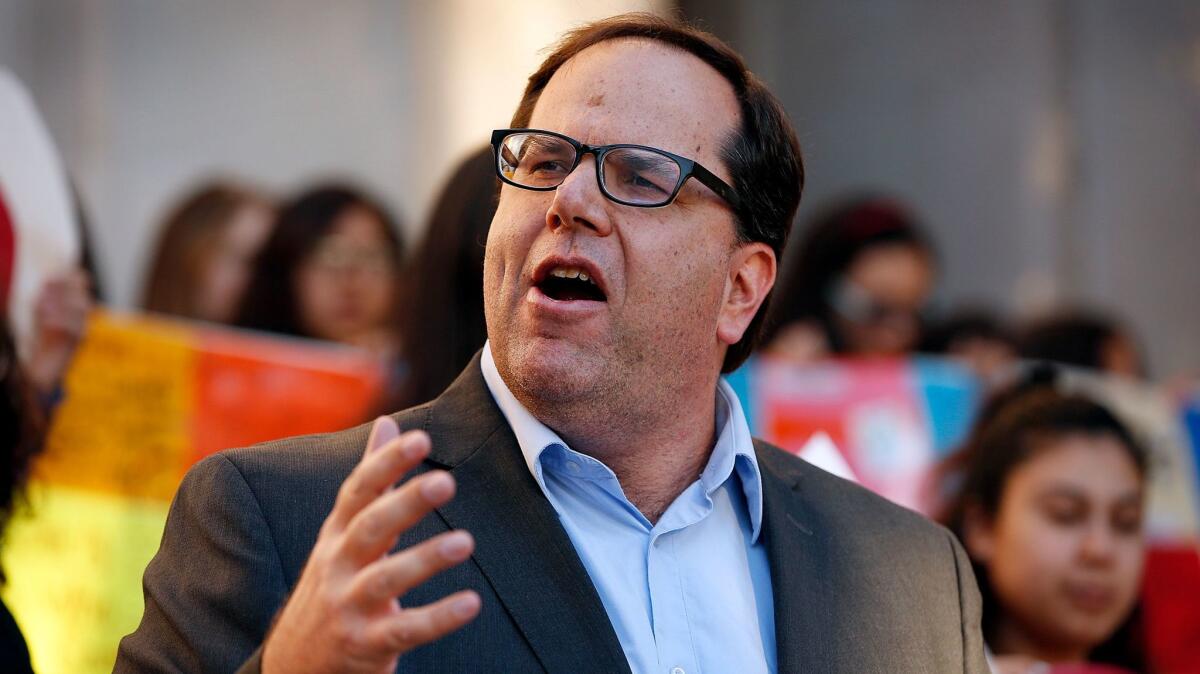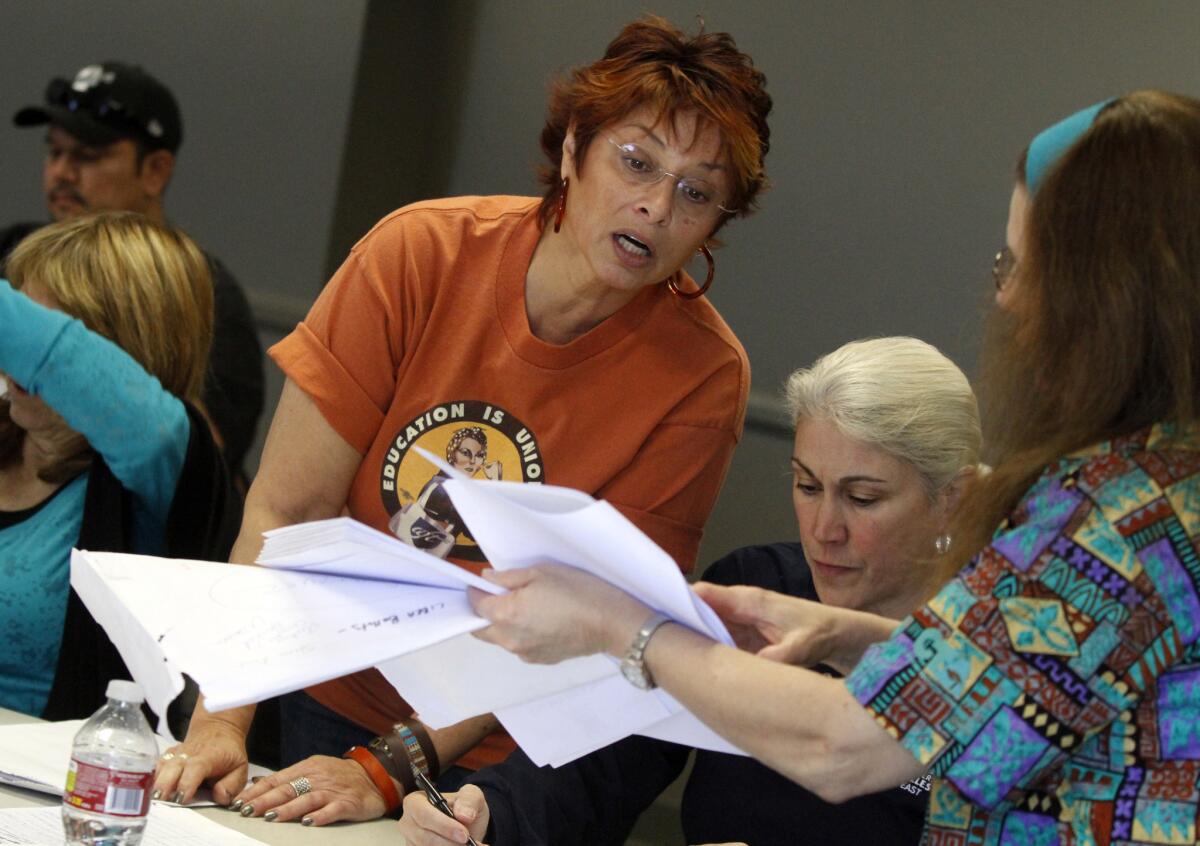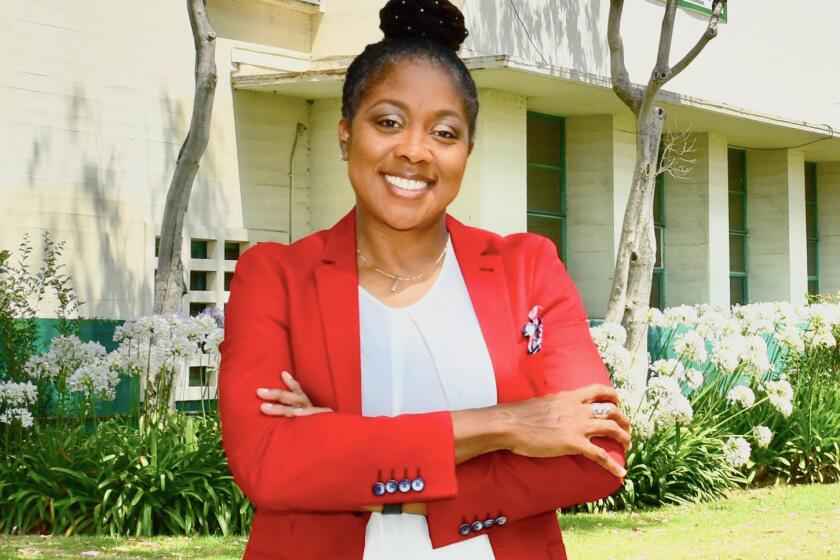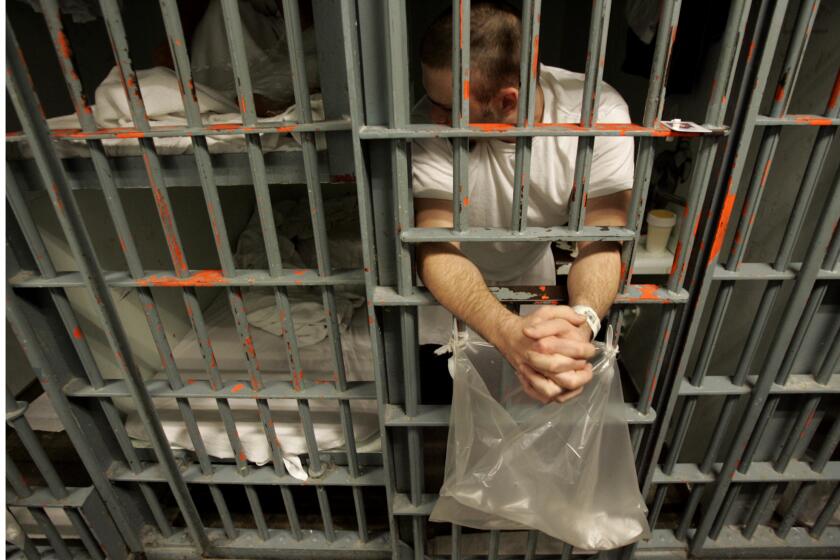An inside, outside election season for L.A. teachers union

For Los Angeles teachers, the current political season packs a one-two punch.
On Monday, ballots are counted to determine who will lead their union. Just over a week later, voters decide on three pivotal L.A. school board seats.
Both results will be important not just for future negotiations over classroom and work conditions but because powerful forces want to push Los Angeles education in a different direction, which could very much affect teachers’ lives.
Union President Alex Caputo-Pearl, 48, is running for a second three-year term, and says that he’s made strides for teachers that also help students, including negotiating a contract that reduces some class sizes. Then too, helped by the improved economy, he won a significant salary increase in the most recent contract.
His overarching focus, however, has been an attempt to energize United Teachers Los Angeles as a political powerhouse against forces — especially the growth of charter schools — that are diminishing its membership and threatening its finances and clout. He’s running on a “Union Power” slate.

Opposing him is Lisa Karahalios, 52, a longtime active union member who served as the UTLA representative on the district committee, chaired by board member Monica Ratliff, that unearthed problems with the district’s now-canceled iPads-for-all effort. Karahalios is part of an all-woman “Sisterhood Slate” for the union’s various citywide union offices. They assert that help for members with problems at schools is being neglected in favor of an obsession with big-picture politics.
Other candidates are running as independents.
Union members will already have made their choices by March 7, which is Election Day for the city of Los Angeles and the Board of Education. How people vote on the board seats will give a sense of whether the union’s political revival has gained hold externally.
Both candidates for the union post agree that charter schools are a crucial issue in the city election. A vast majority of these privately managed public schools are non-union.
L.A. Unified already has the most charters and students attending charters of any school system in the nation. Charter students now make up 16% of enrollment. Charter schools’ philanthropic backers want to see more growth, which would mean fewer members for United Teachers Los Angeles and less money for L.A. Unified, the union teachers’ employer.
The union had 45,000 members in 2008, when there were more school-age children in L.A. and fewer charters. It now has 32,000 members — teachers, counselors and nurses.
In the school board races, UTLA-backed candidates are facing off against those supported by charter-school advocates. Although the union can’t match charter backers dollar for dollar, it’s ultimately likely to spend well over $1 million to plug its candidates and to try to convince voters that charter-backed candidates are the tools of billionaire donors who would work on behalf of a Trump agenda — because Trump views increasing the number of charters as key to giving families more choices in schooling options.
Charter advocates point out that former President Obama also supported the growth of charter schools.
“Clearly, UTLA has bet heavily on its ability to demonize and resist charters,” said Charles Kerchner, senior research fellow with the School of Educational Studies at Claremont Graduate University, who has not taken sides. “I don’t know what their Plan B is.”
Paying for Plan A was accomplished in part by persuading members last year to raise their dues by about 50%, to around $1,000 a year.
Caputo-Pearl has added eight senior union positions, with a ninth paid for by a national parent union. In line with his organizing and political goals, these jobs include a campaign research director, a political director, four organizers and two staff members to represent teachers at charter schools.
For years, Caputo-Pearl said, “UTLA was operating in a way that lacked sufficient strategy, coherence, and direction. … We have addressed this, and UTLA is operating with unprecedented strength.”
His approach has been praised by union leaders such as Randi Weingarten, president of the American Federation of Teachers, who, according to union rules, is taking no position on which candidate should win.
Karahalios, a middle school teacher, said the union is not so helpful to individual teachers in need.
“While UTLA needs to be engaged at the state and national level, we need to prioritize our local issues,” she said.
She and other critics also question the staff expansion and accuse Caputo-Pearl of stifling dissent. The union’s election committee, they note, declined to hold traditional candidate forums this year.
Caputo-Pearl said that decision was made independently of him, but former union President A.J. Duffy called it odd and improper. That said, Duffy praised Caputo-Pearl’s overall record and predicted his reelection.
“He got his members a 10% raise and maintained health benefits — no other issue will supersede that,” Duffy said.
To read the article in Spanish, click here
Twitter: @howardblume
More to Read
Sign up for Essential California
The most important California stories and recommendations in your inbox every morning.
You may occasionally receive promotional content from the Los Angeles Times.











